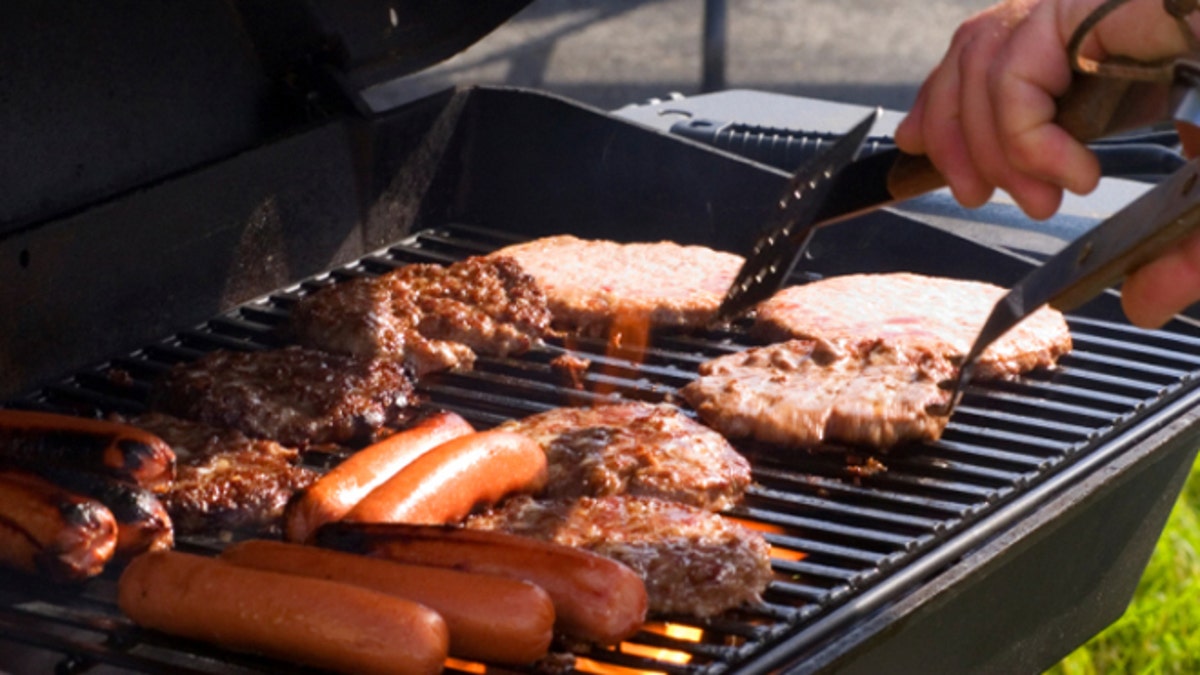
Flipping Burgers on a grill (istock)
When you combine gas, fire, toxic gases, and raw meat, you have the potential of big danger–and that's just what can happen when you step outside to grill. But it's not likely that you'll be dialing 911 when you follow these simple safety tips.
Look for Leaks
To reduce the risk of a fire or explosion at your gas grill, check the grill hoses for cracking, holes, and leaks. Move gas hoses away from hot surfaces and dripping grease.
Think Tanks
Keep propane gas containers upright, and don't store spare containers under or near the grill or in a hot car or car trunk.
Ventilate
Don't burn charcoal inside your home, garage, vehicle, tent, or camper. Charcoal produces carbon monoxide (CO) when it's burned, and this colorless, odorless gas can accumulate to toxic levels in closed environments. Since charcoal produces CO fumes until the charcoal is completely extinguished, don't store the grill indoors with freshly used coals.
Douse
Keep a garden hose filled with water near the grill, or, if that's not possible, keep a bucket of water nearby to put out a flame or use on a burn.
Beware the Fat
The fat that drips onto the flames creates smoke that contains polycyclic aromatic hydrocarbons–chemicals in smoke that are potential carcinogens. If you grill lean meats, poultry, and fish, you'll have less fat dripping onto the flames. The blackened parts of meat may also contain carcinogens, so remove all charred or burned portions of food before eating.
Beat Bacteria
To avoid a food-borne illness, don't baste with the same liquid in which the raw meat marinated. Harmful bacteria from the raw meat may have transferred into the marinade. Either remove a portion of the marinade before placing raw meat in it, or, after you remove the meat from the marinade, boil the marinade. Use separate cutting boards and containers for meats and for vegetables to avoid bacterial cross-contamination between foods. Wash all utensils and plates that have come in contact with raw meat before using them for cooked foods since any harmful bacteria present in the raw meat juices could contaminate safely cooked food.
Take Your Temperature
Cook food to a safe internal temperature to destroy harmful bacteria. Meat and poultry cooked on a grill often browns very fast on the outside. Use a food thermometer to be sure the food has reached a safe internal temperature.
These are the minimum temperatures for safety. Higher end temperatures are acceptable, depending on preferences for doneness.
• Poultry (ground, whole, breasts, thighs, and drumsticks): 165ºF
• Ground beef: 160ºF
• Beef, veal, and lamb (steaks, roasts, and chops): at least 145ºF
More from MyRecipes
Healthy Grilled Recipes Under 300 Calories
Healthy Menus for Summer Cookouts
7 Ways With Ramen Noodles
Tailgating Recipes Under $1
Back to School Brain Food
